- Home
- Piers Anthony
Letters to Jenny Page 5
Letters to Jenny Read online
Page 5
I guess that’s all—oh, what’s that? You’re reminding me to what? Oh, to tell you about the Llano. Yes. I think you haven’t read my other fantasies, and they’re really not intended for folk who aren’t in on the Adult Conspiracy, but this much should be all right. You see, in that fantasy series there is the ultimate song. It’s really the operating system of the universe—I’ll wait while you make your mother tell you what a computer operating system is—in the form of music, and the lady who becomes Nature has a rare talent for music and learns how to sing it. But even the pieces of it, the little fragments that some folk learn, have rare power; when folk sing them, wonderful things happen. There’s the Song of Morning, which makes the dawn come and flowers grow, even when it’s the middle of the day on a pavement. There’s the Song of Evening, which brings love. So keep your ear open; some day you may hear a piece of the Llano, and you want to be sure to remember it.
I was also going to tell you about how math could be beautiful. No, don’t drum your fingers impatiently on the armrest; someone might see you, and then there would be a great hue and cry: “She can drum her fingers!” and your privacy will be gone. You see, I know about the deadly dullness of math. I mean, who can stand to memorize the Times Tables? I couldn’t! I took an IQ test once, and the problem was all in words, but I immediately saw that it worked out to eight times twelve. Then I had to stop and figure out what that was, while the woman was timing me on the stopwatch. It turned out that that was supposed to be the easy part; most kids couldn’t get that far, but when they did, they knew the answer instantly. Which sort of thing explains why folk never thought I was smart. That, and the way I took three years to master first grade. Yes, I really did! So maybe some day I’ll succeed in memorizing eight times twelve. I wonder if it’s close to the answer for twelve times eight? That would be a nice coincidence! Anyway, arithmetic was the bane of my existence, until about ninth grade, when it changed. I didn’t change, it changed. It quit with the stupid Times Tables, which are called Rote Learning, which is the stuff of idiocy, and started with algebra, which is like a puzzle. If X plus 5 equals your age, what’s X? I’ll bet you can solve that one! You can even use it to solve one of the trickiest riddles ever, which your mother probably encountered generations ago: Mary is 24. Mary is twice as old as Ann was, when Mary was as old as Ann is now. How old is Ann? This is the stuff of fun, if you like brain-buster riddles, which I do.
You can make lines and circles and things on paper with the right X and Y formulae. This is because the answers change. Next year X will be larger than it is this year, because your age will be more. So you can plot a line of all the possible values of X, and you can even follow it back into the past: when you were 4, what was X? What number added to 5 equals your age of four? A minus number, that’s what! Maybe that seems foolish in the real world, but math is a world of its own where strange things can happen. It can be fun making up equations and finding out what pictures they make.
But mainly, it is that math can become very like art, especially with the aid of a computer. You see, a few years ago a man tried plotting an equation—what? No, his name doesn’t matter. He used a complex equation—no, I told you his name doesn’t matter. He made a drawing of all the points that fell inside this equation; the ones that fell outside he ignored. So—oh, all right, his name was Mandelbrot. Now will you listen? He took this complicated formula and used the computer to figure out all the points—and it turned out to be a very strange figure indeed. The main part of it looked like a lady bug, but there were also little lady bugs near it, and they were all connected by curling patterns. When he used colors to mark these patterns, it became beautiful. In fact I would call it art. The patterns keep repeating on smaller and smaller scale, but never quite the same as before, so there’s always something new to find. So this science of figuring out such pictures is called fractals, and this one figure is called the Mandelbrot set (I can’t think why!) and it is considered to be the most complicated object in mathematics—and perhaps also the most beautiful and fascinating. I can look at it for hours, always being amazed. There are patterns like little shells in there, and others like sea-horses, and who knows what else. Maybe your folks have encountered this, and can show you one of those colored pictures in a book. If your mind is anything like mine, you won’t find it very interesting at first glance, but the more you look at it the more fascinating it will become as you try to figure out just what’s with this weird design. All from an obscure mathematical formula. So remember: there’s a whole lot more to math than the awful stuff they teach in grade school, and the higher math resembles the lower math much the way a beautiful princess resembles a squalling baby. I’ll be getting into this when I write Fractal Mode, the novel with that picture I described on the record album jacket—you know, with the huge stone dulcimer and the girl in the red dress. I don’t know which fascinates me more, the dulcimer or the damsel or the Mandelbrot set imagery I’ll draw on. So I will write to Mr. Mandelbrot, to make sure it’s all right to do that.
Now let’s see—now stop that snoring, I know you aren’t asleep!—I was going to mention that I have put a scene in Isle of View with a princess and a unicorn. See, I knew you weren’t asleep! Actually there’s a dragon in it too; I hope you don’t mind. It’s a nice story that they make into a bad dream for Fracto (no relation to fractal!) the mean cloud. You see, Fracto hates nice things, so this really nice tale drives him to thunderation. But Jenny Elf picks up on it too, and for her it’s a nice scene. So the novel is progressing, slowly because a lot of other stuff came in this week, but it is getting there, and Jenny Elf is—well, can you keep a secret? She turns out to have a magic talent. Mundanes don’t, but she’s from the World of Two Moons where there is magic. So she has magic. It’s that when she sings, which she doesn’t like to do in public—I mean, who does?—a fancy forms, sort of like a daydream of a really nice scene, like a sweet princess and a nice castle, and anyone who hears her sing but isn’t paying attention enters the fancy too, and enjoys the scene. But anyone who is paying attention can’t get into it. This makes it sort of hard to verify her magic, as you might think. But it’s there, and it helps her stave off the awful fate the goblins are planning for her. Oh, I know it’s not Magician class magic, but it’s good enough.
Tell your mother thanks for the copy of Andrea Alton’s novel she sent. I am buried in reading right now—I have to read a fantasy novel for a publisher, for a blurb—that’s a comment they can run on the cover, to encourage others to buy it—and I’m a slow reader. But in due course I’ll get to this one, so tell her not to get too impatient about getting it back. I see it has cat folk on the cover, which makes sense; anyone you folk know relates to cats, right?
I must stop; it’s supper time. Keep getting better, Jenny—I know I’ve said that before, but you know, I wouldn’t want you to change your mind and start getting worse. May you dream of elves and unicorns and fractals—oh, all right, you can leave out the last.
Apull 28, 1989
Dear Jenny,
I heard something about something—details are obscure, because nobody is talking, but I think it was a whistle. I had to piece it together from secret fragments, and parts of it may be missing, but here is the unauthorized version of the incident.
Things were quiet at the Cumbersome Hospital, and the folk there were going about their various businesses. The doctors were counting their money in the Doctors' Club, the nurses were running around with big needles to give patients shots, the patients were hiding under the sheets hoping the nurses wouldn’t find them, and the cooks were preparing something horrendously awful for the next meal. In short, everything was routine.
Suddenly there was a piercing whistle. It reverberated through the halls and made every person stop. What was that? The sound was so compelling that all the doctors, nurses and cooks charged up to Warp 7 to find out where it came from. They traced it to Jenny’s room, and they all arrived there at once and squeezed through the door tog
ether. But it happened that the staff had been waxing the floor that day, and the surface was just about one degree more slippery than a wet bar of soap on melting ice. The nurse in the lead took a phenomenal spill and landed on the floor, sliding right up to the edge of the bed. The doctor behind her landed on top, and the nurse behind him landed on top of him, until there was a pile like a crazy sandwich just about six nurses, two doctors, one cook and a cleaning woman high.
Now it just so happened, by the type of coincidence that occurs only in a story like this, that the nurse on the bottom of the pile was the very nurse who had once threatened to give the monster under this bed a loathsome shot in the rump. Now her face was right up close, and she couldn’t move. Suddenly a huge hairy hand came out and tweaked her on the nose. She screamed. “EEEEEEEEKK!!” It was the most piercing eeek ever heard in Warp 7, almost as penetrating as the whistle had been. It shook the entire pile.
Then, slowly, the pile began to fall. The cleaning woman on top grabbed at her bucket of slop water, but all that accomplished was to dump the bucket on the rest of the pile, wetting six nurses, two doctors and one cook. They all screamed with outrage as they fell. After all, it was suspected that that water was supposed to be saved for the next day’s soup. “Aaaaaahh!!” Then the pile crashed to the floor, scattering arms and legs and whatever everywhere.
At this point the therapist arrived. Her name was Sue. “What are you all doing here?” she demanded indignantly. “This is supposed to be a private session!” The others scrambled out, humiliated. They never were able to find out who had blown that whistle. It is a mystery that remains to this day, because nobody likes to talk about it. In fact the doctors claim that nothing happened, nothing at all.
But Sue was unable to do the therapy session, because Jenny was sound asleep, with nothing but the very faintest of smiles on her face. Clutched in her left hand, out of sight under the sheet, was a silver whistle. Could it be? Sue shook her head and tiptoed out, so as not to disturb Jenny from her nap.
Okay, that’s all I have been able to piece together. I wonder how much of it is true? The folk at the hospital all deny that any such thing happened, of course, and there’s a perfectly good explanation why their uniforms looked like tomorrow’s soup, but there is that whistle, and the monster under the bed seems happier than he’s been in a long time. Your mother said something, but it wasn’t at all like this, so she may be in on the conspiracy of silence. We’ll probably never know for sure. But you can tell me: were you really asleep?
I had an experience with my computers this week. You see, I made a lots of notes two years ago for my big novel Tatham Mound, which is about the American Indians who encountered Hernando de Soto, the Spanish conquistador who landed in Florida and discovered the Mississippi River. He was looking for gold, and he wasn’t very nice to the Indians who told him they didn’t have any. So this will be a savage novel, and I have over a hundred books I plan to use for research. But my early notes were in my former computer, and I needed to translate them to this computer. Computers don’t necessarily talk to each other, you see; sometimes you have to use eye blinks or keyboards or whatever to find out what they’re up to. The floppy drives were on the blink: they kept saying I had no disk there, when I did. So we were going to have to call the repairman. But I tried it once more, because you know how things play possum, then work perfectly when the repairman is watching. It still didn’t work. I tried it again and again, and it didn’t work. After about six times I tried something dirty: I took the disk out and told it to read the disk. That gave it a real error to chew on. And would you believe: after that, when I put in the disk, it decided to read it! So I quick translated my two disks of Mound notes to the new format and read them into my new system. Now I have my notes and four chapters in my new system, ready for me to write more. All because I faked out the computer. Maybe it thought I was the repairman when I gave it a real error to work on. So I’m happy; it isn’t often a person can outsmart a dumb machine. Ask your mother.
But there’s a moral. Yes, you knew I was going to get to that, didn’t you. And you’re going to pretend you’re sound asleep, clutching your whistle, aren’t you! But it won’t work; here is the moral anyway. It is that if something doesn’t work the first time, or the second, keep trying, because maybe after the sixth time it will. I remember when you were in that deep pit—it was more like a well, actually, dark and lonely and scary—and you finally started to climb out, an inch and a blink at a time. You struggled and struggled and at last you made it to the rim—only to find that that was only the first hurdle in a mountain of challenges. So you’re still struggling to get back your own, one muscle at a time. You wish nature would just let you get it all back in one swell foop, but foops are hard to come by. So keep struggling, Jenny, and maybe one day you’ll get to take a giant step instead of a finger step.
One of our magnolia trees had seven flowers one day. Did I tell you about the magnolias? No? When we were having our half-mile drive put in, I was showing the man where, and I saw a little magnolia tree right in the path of the dozer. “Go around that tree,” I told him. Thus it was that that little tree was saved. But they cut the road so close to it that some of the roots were damaged, and the poor little thing’s leaves were turning pale and yellow. We were afraid the tree wouldn’t survive, after all; it was sort of in the Cute Care section. Then I had a bright idea. Maybe nitrogen would help it. Plants like nitrogen; it helps them grow. It happens that there is nitrogen in urine. So whenever I passed that tree, I—well, never mind the details. But soon its leaves were turning green again, and it was doing better. It’s out of Cute Care now and will probably grow into a fine tree in due course.
Your mother says the flowers in her garden just aren’t as pretty when you aren’t there. They will surely perk up when you return. You say maybe they need nitrogen? Your mother says Absolutely Not!! (No, I don’t know what set her off. Women are strange that way.)
I have just written a scene between Sammy Cat and Prince Dolph. You see, Jenny Elf told Sammy to find help, when the goblins were capturing her and Che the centaur foal, and he took off and found Dolph. Dolph can change forms, so he became another cat and talked with Sammy in feline language. But Sammy never says two words when one will do. “Where did you come from?” “Home.” That sort of thing. It was frustrating. Finally Dolph got smart, and told Sammy to find the captives. Then Sammy took off, and Dolph followed. But there’s a lot of adventure still to come.
The other day we saw strange bugs on the screen enclosure of our swimming pool. They looked like huge gray Assassin Bugs, but one was pink. Was it hatching from its old gray skin? Then a cardinal came by and snapped it up. We like birds and we don’t like assassin bugs, but it was a bit of a shock to see nature so directly in action. Everything preys on something else. We love the pretty colored dragonflies, though they are predators too. The thing is, they prey on things like deerflies, and the deerflies bite our horses (we do have deer in the forest, but I guess the deerflies can’t always find deer to bite), so we really appreciate the way the dragonflies keep them down. I found a dragonfly in the pool enclosure. We always try to get them out, because there’s nothing in there for them to eat, and they can starve. But they think it’s a game when we shoo them out, and gaily dodge around us. This one had evidently been in a couple of days, and was flying slowly. I opened the door, but it landed on the doorframe instead. I actually touched its wing, but it didn’t move. Finally I managed to jog it loose, and it flew on outside. I hope it had the strength to catch a fly!
Yesterday when I rode my bicycle out to pick up the newspapers—they are three quarters of a mile from our house, you see—I discovered halfway there that my little basket was half full of leaves and moss and stuff. Something was trying to make a nest there! When I got back, two wrens flew from that region. So I took off the basket and set it up in the corner, with its leaves and things still there, so that next time I wouldn’t ride off with their nest. But the wrens
did not return; they didn’t trust it after that. I can’t blame them. I’m just sorry I didn’t see the leaves before I rode out. We like wrens; they are gutsy little birds, and they keep bugs from the house.
So our life goes on from day to day in its petty pace, and I guess yours does too. But keep working at things, Jenny; even inchworm steps are better than none. And tell your mother I meant to write her a letter too, this time, because I have a whole lot to say, but I ran out of time. So in a few days I’ll write her. You say all I have to do is tell you what I want to say to her, and you’ll tell her? Well, thanks, but do you really want to tell her two pages? I thought not.
PS—Since I changed from the manual typewriter to the computer, my I’s don’t capitalize; I think I take my finger off the capital key too fast. So I made a macro to capitalize them for me. It just capitalized 27 in this letter! And four more in this paragraph. Don’t you try to miss I’s like that—you’ll get cross-eyed.
Oh, one more thing: your mother told me of a story you wrote once, about flowers and a blind princess. Is it all right if I put that in the novel? I think it’s a lovely story, and it does explain why flowers have pretty smells. You have such a nice way of seeing things, sometimes, Jenny.
Ouch—and the printer messed up your letter; I’m printing it over. As I said before, the computer will get you if you don’t watch out.
* * *
*AUTHOR’S NOTE:
THE COMIC STRIP I MENTION SHOWED CURTIS HAVING LUNCH WITH HIS WHITE FRIEND GUNK, A VEGETARIAN, WHOSE SANDWICH HAD A WHOLE CARROT IN IT. GUNK IS A FRIEND TO ALL LIVING THINGS, AND HIS HOMELAND OF FLYSPECK ISLAND IS A MAGICAL REALM. JENNY AND I JUST HAD TO LIKE GUNK.

 Serial
Serial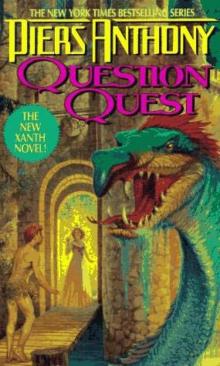 Question Quest
Question Quest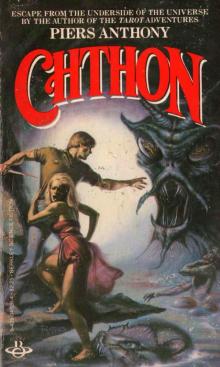 Chthon
Chthon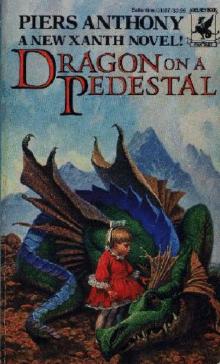 Dragon on a Pedestal
Dragon on a Pedestal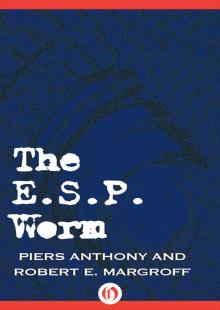 E. S. P. Worm
E. S. P. Worm Hope of Earth
Hope of Earth The Series Boxed Set
The Series Boxed Set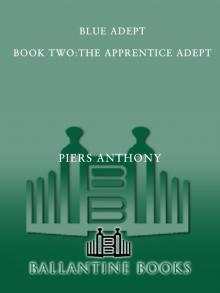 Blue Adept
Blue Adept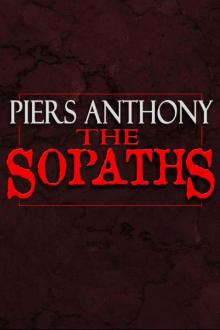 The Sopaths
The Sopaths Beetle Juice
Beetle Juice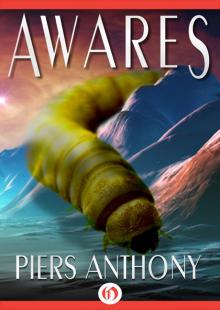 Awares
Awares Golem in the Gears
Golem in the Gears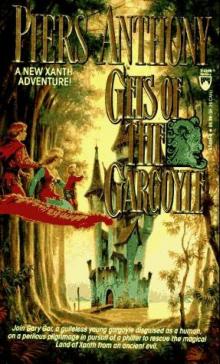 Geis of the Gargoyle
Geis of the Gargoyle Bamboo Bloodbath and Ninja's Revenge
Bamboo Bloodbath and Ninja's Revenge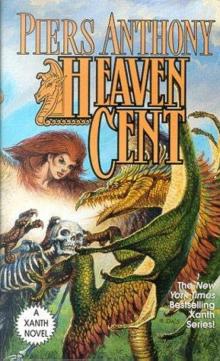 Heaven Cent
Heaven Cent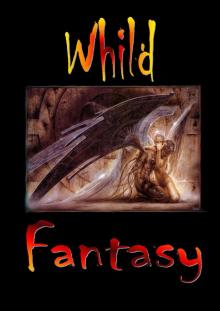 Neq the Sword
Neq the Sword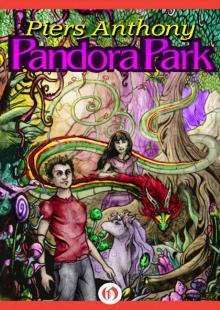 Pandora Park
Pandora Park Juxtaposition
Juxtaposition Bearing an Hourglass
Bearing an Hourglass Dragon Assassin
Dragon Assassin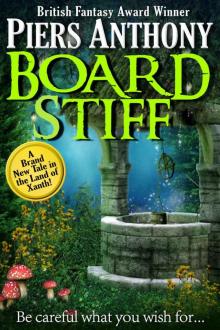 Board Stiff
Board Stiff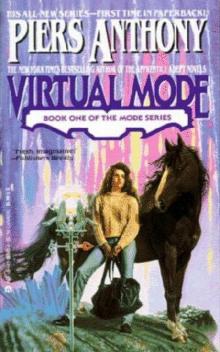 Virtual Mode
Virtual Mode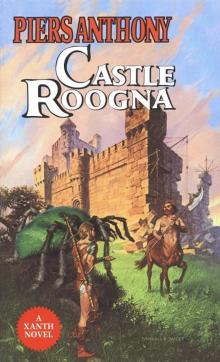 Castle Roogna
Castle Roogna Aliena Too
Aliena Too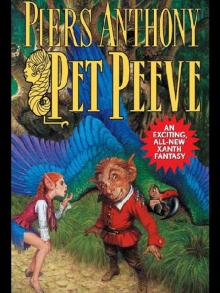 Pet Peeve
Pet Peeve The Metal Maiden Collection
The Metal Maiden Collection Volk
Volk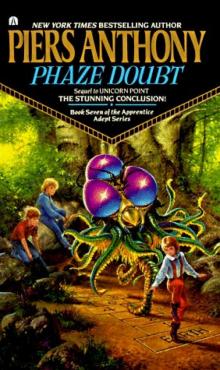 Phaze Doubt
Phaze Doubt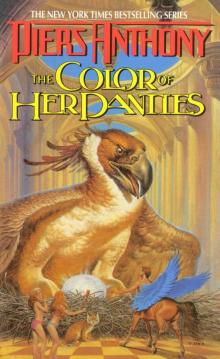 The Color of Her Panties
The Color of Her Panties Amazon Slaughter and Curse of the Ninja Piers Anthony
Amazon Slaughter and Curse of the Ninja Piers Anthony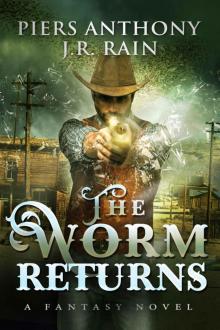 The Worm Returns
The Worm Returns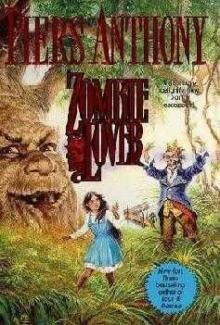 Zombie Lover
Zombie Lover Xone of Contention
Xone of Contention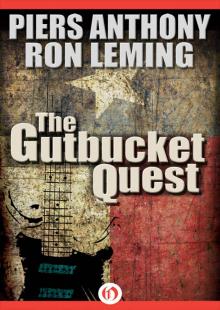 The Gutbucket Quest
The Gutbucket Quest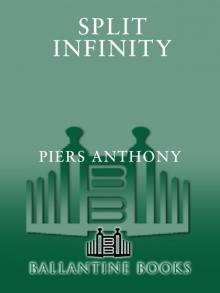 Split Infinity
Split Infinity Dream a Little Dream: A Tale of Myth and Moonshine
Dream a Little Dream: A Tale of Myth and Moonshine Balook
Balook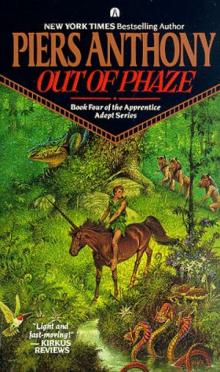 Out of Phaze
Out of Phaze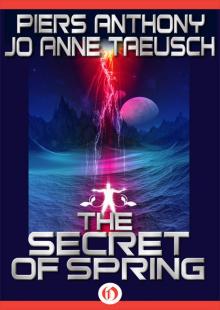 The Secret of Spring
The Secret of Spring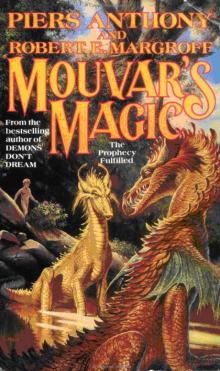 Mouvar's Magic
Mouvar's Magic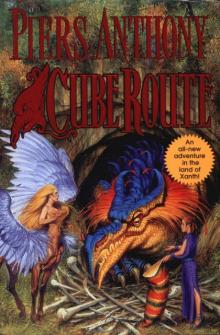 Cube Route
Cube Route Mercenary
Mercenary Total Recall
Total Recall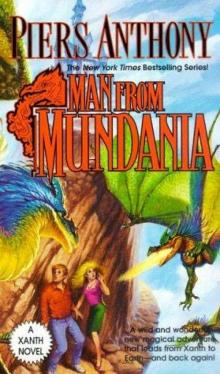 Man From Mundania
Man From Mundania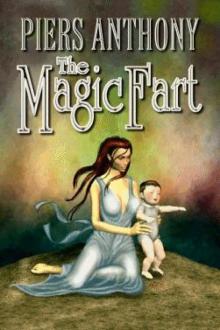 The Magic Fart
The Magic Fart Letters to Jenny
Letters to Jenny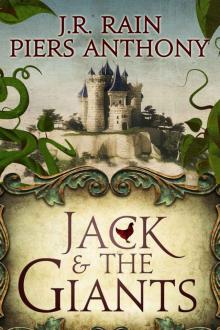 Jack and the Giants
Jack and the Giants Executive
Executive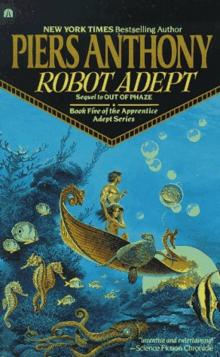 Robot Adept
Robot Adept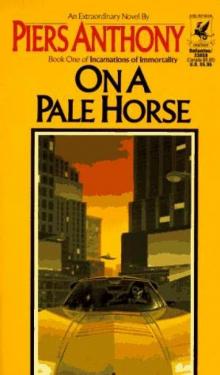 On A Pale Horse
On A Pale Horse Vale of the Vole
Vale of the Vole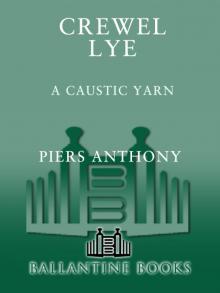 Crewel Lye
Crewel Lye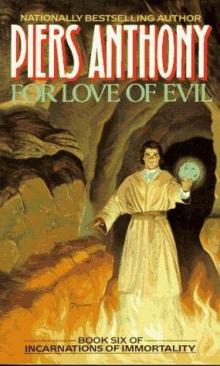 For Love of Evil
For Love of Evil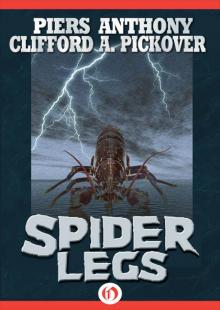 Spider Legs
Spider Legs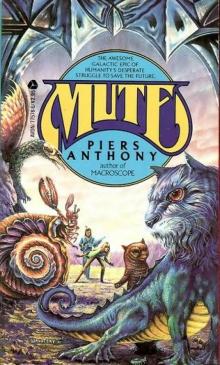 Mute
Mute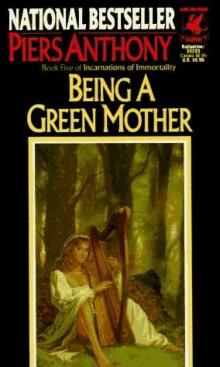 Being a Green Mother
Being a Green Mother Hair Suite
Hair Suite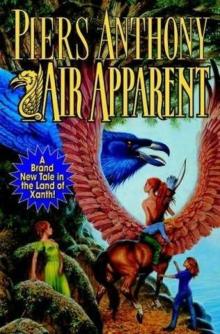 Air Apparent
Air Apparent Politician
Politician Aliena
Aliena Phthor
Phthor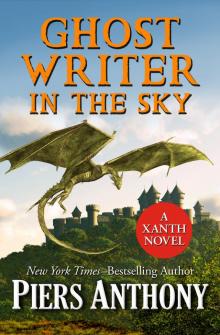 Ghost Writer in the Sky
Ghost Writer in the Sky Pornucopia
Pornucopia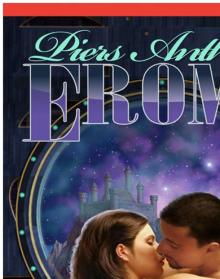 Eroma
Eroma Shepherd
Shepherd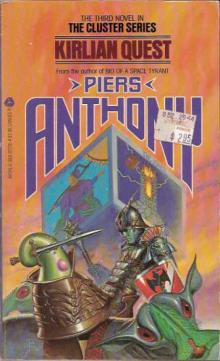 Kirlian Quest
Kirlian Quest Swell Foop
Swell Foop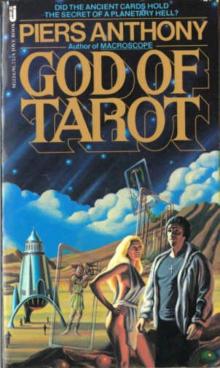 God of Tarot
God of Tarot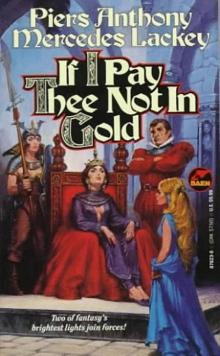 If I Pay Thee Not in Gold
If I Pay Thee Not in Gold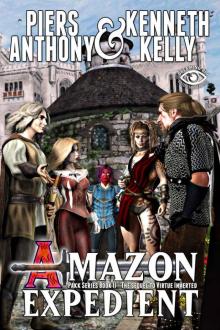 Amazon Expedient
Amazon Expedient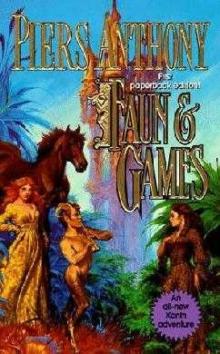 Faun & Games
Faun & Games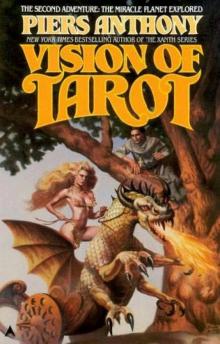 Vision of Tarot
Vision of Tarot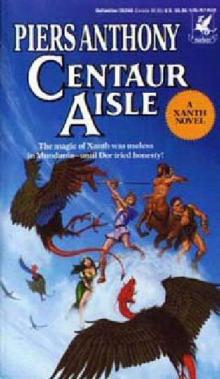 Centaur Aisle
Centaur Aisle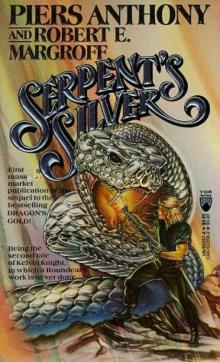 Serpent's Silver
Serpent's Silver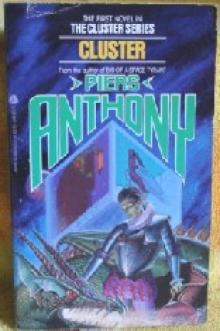 Cluster
Cluster With a Tangled Skein
With a Tangled Skein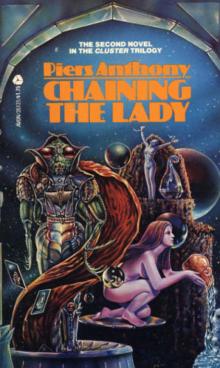 Chaining the Lady
Chaining the Lady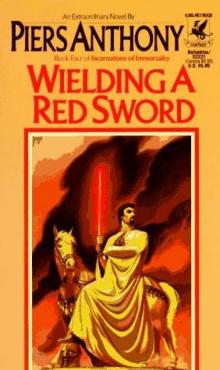 Wielding a Red Sword
Wielding a Red Sword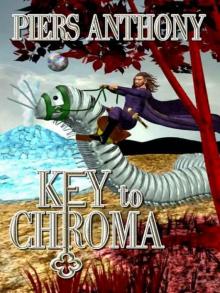 Key to Chroma
Key to Chroma WereWoman
WereWoman Isis Orb
Isis Orb Hair Peace
Hair Peace Two to the Fifth
Two to the Fifth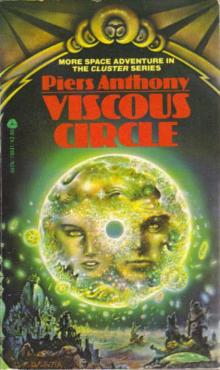 Viscous Circle
Viscous Circle Skeleton Key
Skeleton Key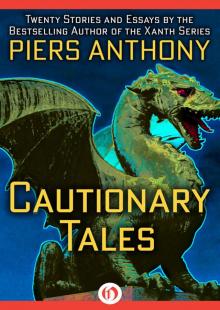 Cautionary Tales
Cautionary Tales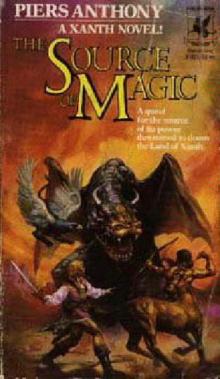 The Source of Magic
The Source of Magic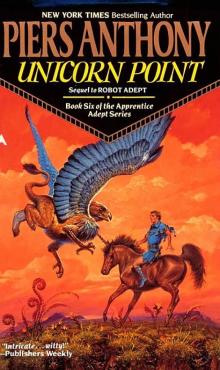 Unicorn Point
Unicorn Point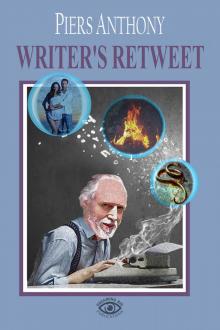 Writer's Retweet
Writer's Retweet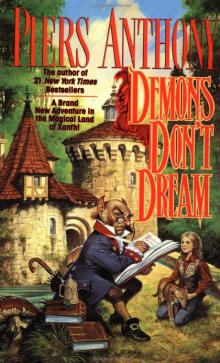 Demons Don't Dream
Demons Don't Dream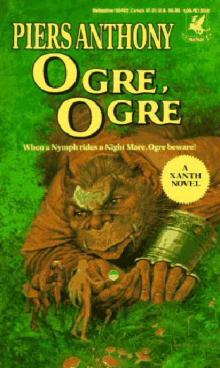 Ogre, Ogre
Ogre, Ogre The Iron Maiden
The Iron Maiden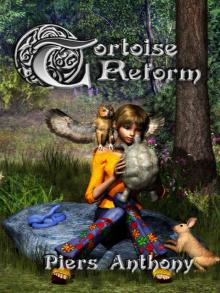 Tortoise Reform
Tortoise Reform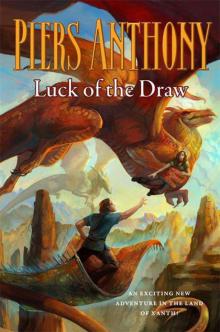 Luck of the Draw
Luck of the Draw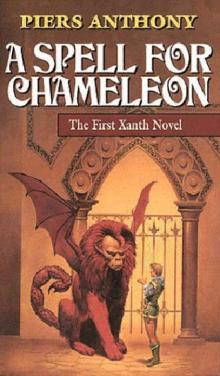 A Spell for Chameleon
A Spell for Chameleon Yon Ill Wind
Yon Ill Wind Currant Events
Currant Events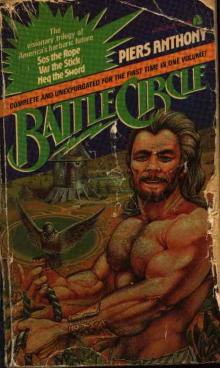 Var the Stick
Var the Stick And Eternity
And Eternity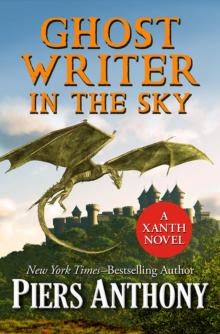 Kiai! & Mistress of Death
Kiai! & Mistress of Death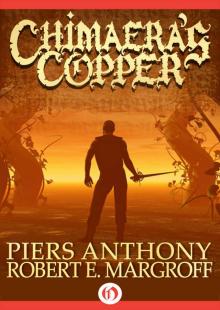 Chimaera's Copper
Chimaera's Copper Refugee
Refugee Isle of View
Isle of View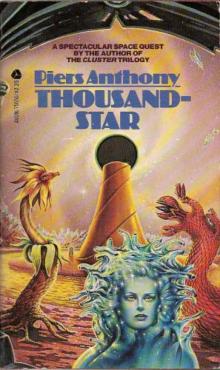 Thousandstar
Thousandstar Mer-Cycle
Mer-Cycle Service Goat
Service Goat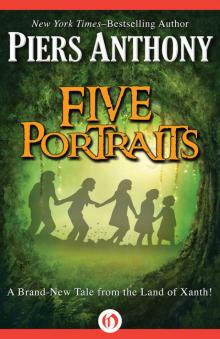 Five Portraits
Five Portraits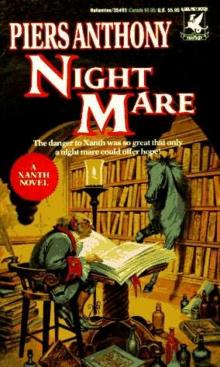 Night Mare
Night Mare Steppe
Steppe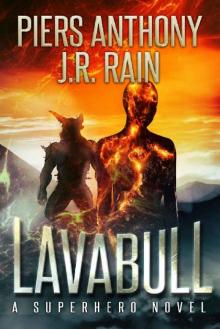 Lavabull
Lavabull Well-Tempered Clavicle
Well-Tempered Clavicle Aladdin Relighted
Aladdin Relighted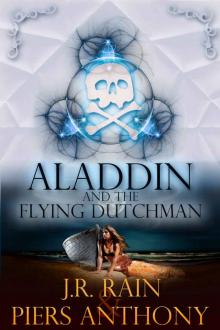 Aladdin and the Flying Dutchman
Aladdin and the Flying Dutchman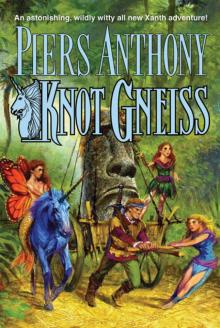 Knot Gneiss
Knot Gneiss Roc and a Hard Place
Roc and a Hard Place Aladdin Sins Bad
Aladdin Sins Bad Flytrap
Flytrap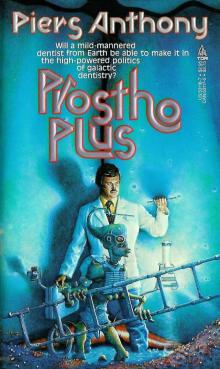 Prostho Plus
Prostho Plus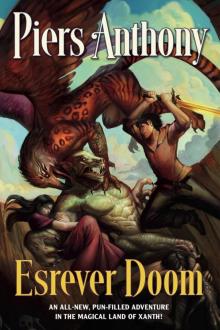 Esrever Doom
Esrever Doom Hair Power
Hair Power The Journey
The Journey Virtue Inverted
Virtue Inverted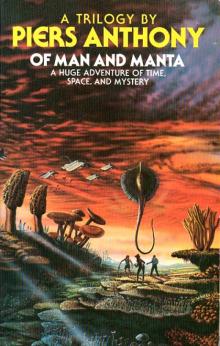 Of Man and Manta Omnibus
Of Man and Manta Omnibus Trail Mix: Amoeba
Trail Mix: Amoeba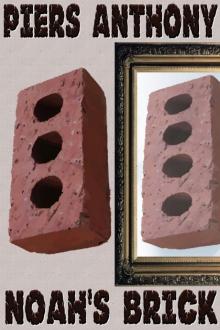 Noah's Brick
Noah's Brick Odd Exam
Odd Exam Magenta Salvation
Magenta Salvation Jest Right
Jest Right Fire Sail
Fire Sail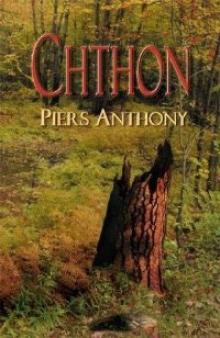 Chthon a-1
Chthon a-1 Amoeba
Amoeba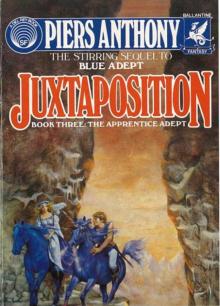 Juxtaposition aa-3
Juxtaposition aa-3 Pira
Pira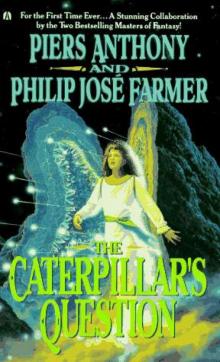 THE CATERPILLARS QUESTION
THE CATERPILLARS QUESTION What Fears Become: An Anthology from The Horror Zine
What Fears Become: An Anthology from The Horror Zine Bio of a Space Tyrant Vol. 3. Politician
Bio of a Space Tyrant Vol. 3. Politician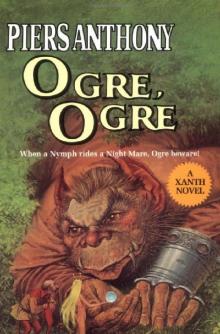 Ogre Ogre x-5
Ogre Ogre x-5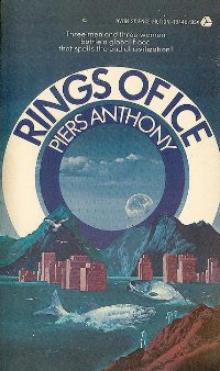 Rings of Ice
Rings of Ice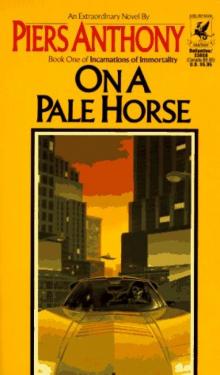 On a Pale Horse ioi-1
On a Pale Horse ioi-1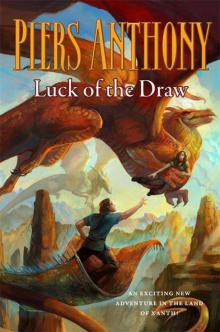 Luck of the Draw (Xanth)
Luck of the Draw (Xanth)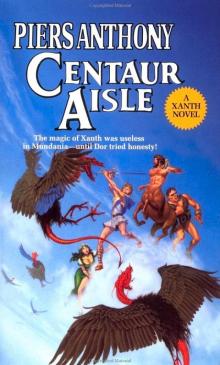 Centaur Aisle x-4
Centaur Aisle x-4 Thousandstar (#4 of the Cluster series)
Thousandstar (#4 of the Cluster series)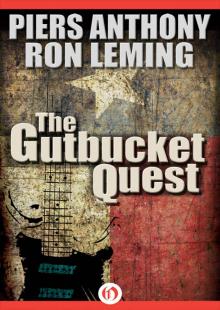 Gutbucket Quest
Gutbucket Quest Isle of Woman (Geodyssey)
Isle of Woman (Geodyssey)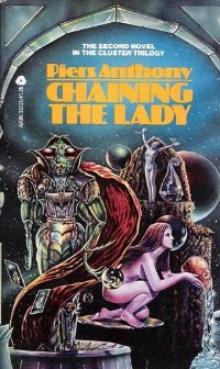 Chaining the Lady c-2
Chaining the Lady c-2 To Be a Woman
To Be a Woman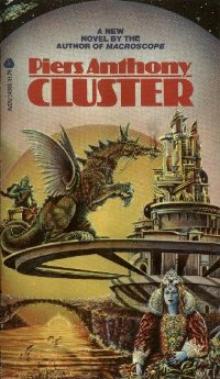 Cluster c-1
Cluster c-1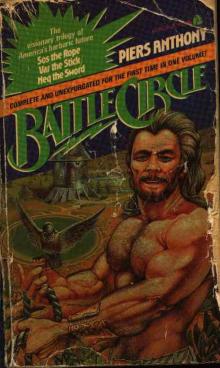 Battle Circle 2 - Var the Stick
Battle Circle 2 - Var the Stick Mercenary (Bio of a Space Tyrant Book 2)
Mercenary (Bio of a Space Tyrant Book 2)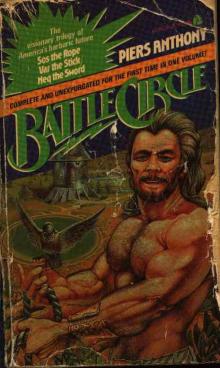 Battle Circle 1 - Sos the Rope
Battle Circle 1 - Sos the Rope Xanth 30 - Stork Naked
Xanth 30 - Stork Naked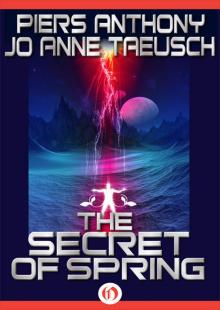 Secret of Spring
Secret of Spring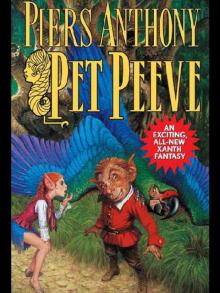 Xanth 29 - Pet Peeve
Xanth 29 - Pet Peeve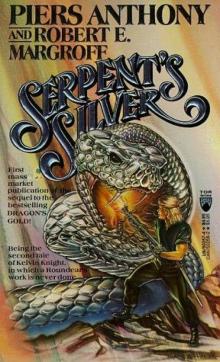 Serpents's Silver
Serpents's Silver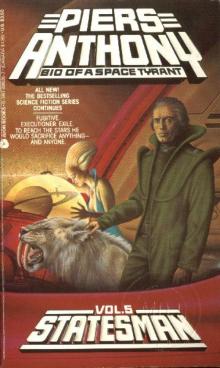 Statesman by Piers Anthony
Statesman by Piers Anthony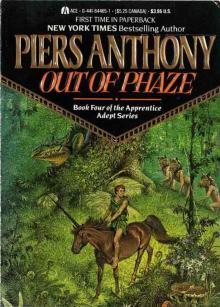 Out of Phaze aa-4
Out of Phaze aa-4 Amazon Slaughter & Curse of the Ninja
Amazon Slaughter & Curse of the Ninja